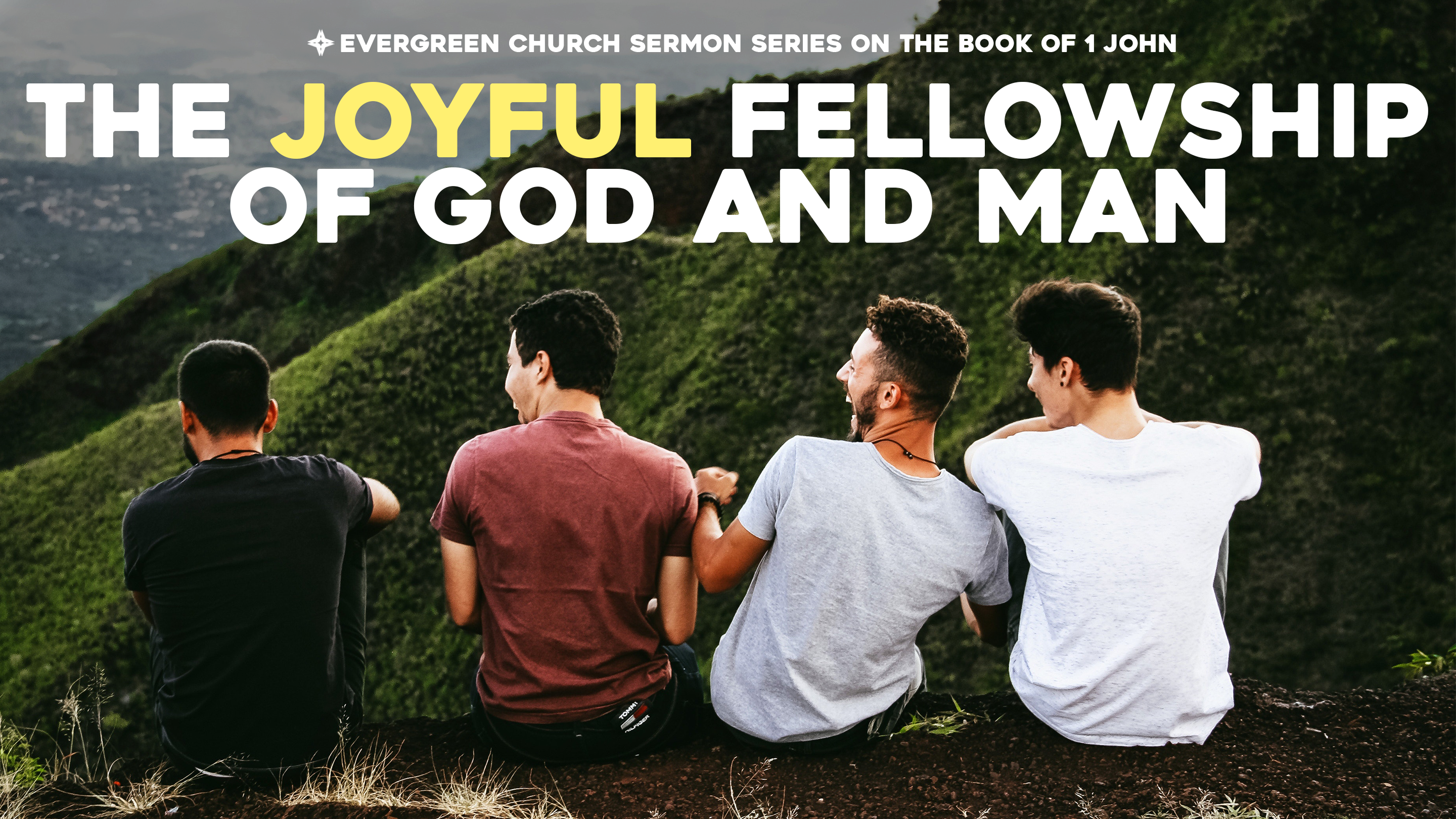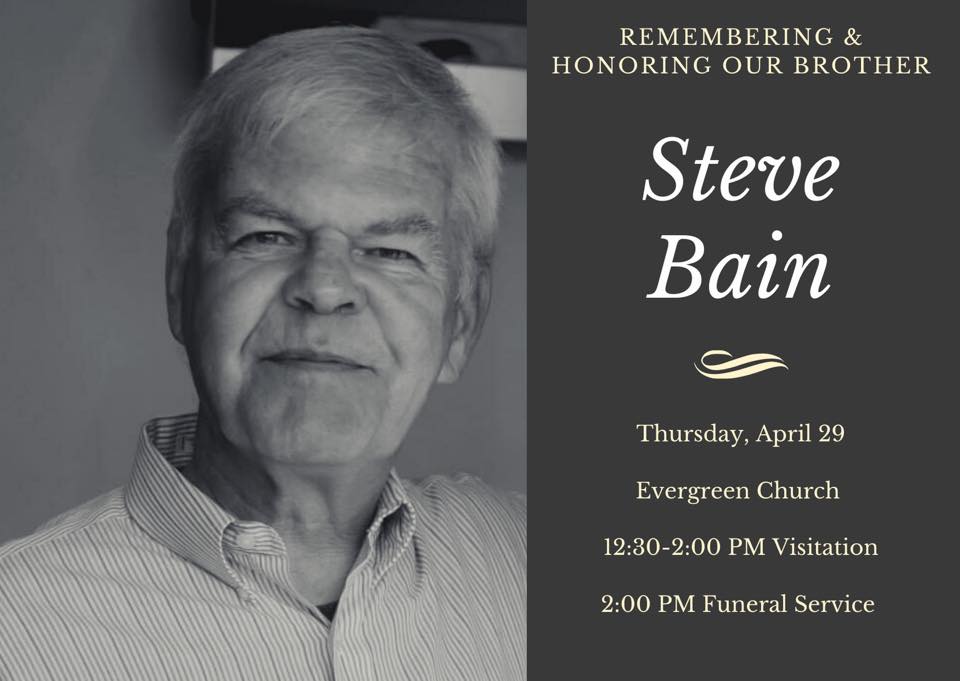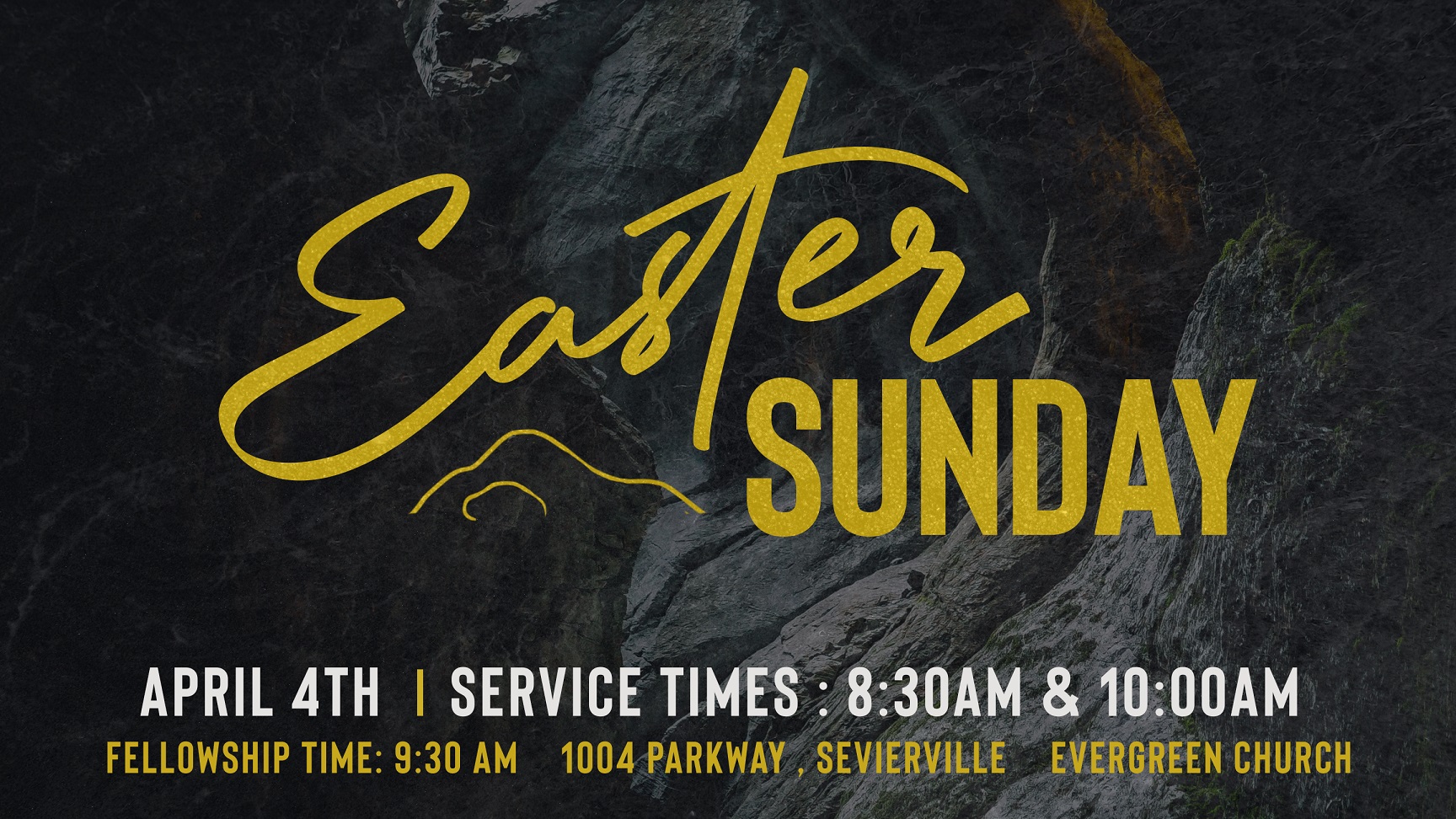
[Listen to an audio version here]
In times of crisis, how are we going to live? How do we find help, strength, and comfort in the midst of sickness, job losses, political division, and death? In such circumstances, we can often turn to religion in order to help us.
But what about when the crisis subsides? What happens if we are in good health, are reasonably well off, and enjoy relative peace? Then, what are we going to do with our lives? What is our life really for? Put another way, if you didn’t have to worry about securing your life, then what would you do with your life? If you knew you were secure to live, then, what would you do to live well?
That’s one of the big issues of our time. Industrial farming and manufacturing and the growth of capitalism have provided for the people of this planet like never before. All over the world, poverty is being reduced. The middle classes are growing. Free time and leisure are increasing. The nations of the world are beginning to enjoy the prosperity of the West.
So, the question arises for more and more people, now that we have leisure and relative prosperity, what are we supposed to do with it? Where can we find a guide to help us live lives of lasting meaning and purpose?
The answer in our text is that Jesus has not only given us guidance, but He is actually present with us to guide us in times of peace and in times of crisis. Jesus will teach us the way to live and live well. We simply have to be ready to follow Him as He leads us. That’s what our text teaches us today. I want you to see three things. We will see, first, Jesus’ guidance of His followers while He was on earth; second, Jesus’ plan for making more followers while in heaven; and third, His presence to guide His future followers.
How Jesus guided His followers while He was on earth
In order to understand what Jesus is saying in this passage, it is helpful to look at how Jesus guided His followers while He walked on this earth.
Consider how Jesus met Peter, James, and John. They were fisherman, and so they were out fishing. Jesus told them to follow Him. What did this mean? It meant that they would literally and physically be with Him. They left their nets, and they followed Jesus.
Another example is that of Matthew, whom the Holy Spirit inspired to write this book that we are reading. Matthew was a tax collector. He was working for Rome, the foreign power that had conquered Israel, and doing very well with it. In the eyes of His people, he was a traitor, and they despised him. That didn’t seem to bother Jesus. Jesus saw him at the tax collector booth, and He said simply, “Follow me.” We learn from the text that Matthew got up and followed him (Mt. 9:9).
Jesus asked all sorts of people to follow Him like that. It didn’t really matter who they were or what they had done or how people viewed Him. He just collected followers. The tax collectors were part of a group of people who were scandalous to the religious leaders of Jesus’ day. But Jesus told them, He was all about gathering all sorts of people to Him, anyone who needed healing and restoration. Jesus said, “It is not the healthy who need a doctor, but the sick. But go and learn what this means: ‘I desire mercy, not sacrifice.’ For I have not come to call the righteous, but sinners” (Matthew 9:12–13). It was truly remarkable. Jesus accepted followers from every type of people in society with every type of background.
But following Jesus wasn’t merely about being with Him physically. He would teach them. He would explain to them what the way to eternal happiness was and how they could live in a right and good way, and they would put what He said into practice. They would hear His words and do them. Some people, though, would follow Him physically, but wouldn’t put into practice His words. So, Jesus said to them, “Why do you call me, ‘Lord, Lord,’ and do not do what I say?” (Luke 6:46).
So, following Jesus was about being with Him, going where He went, listening to His words, and putting them into practice.
We should not suppose, however, that this was merely something they would do on their own. This is what Jesus explained to His disciples, “I am the vine; you are the branches. If you remain in me and I in you, you will bear much fruit; apart from me you can do nothing” (John 15:5). It was living fellowship with Jesus that would enable them to put His words into practice and live a very fruitful life. And how would they live in fellowship with Jesus? Through His Word! “If you remain in me and my words remain in you, ask whatever you wish, and it will be done for you” (Jn. 15:9). He said, “If you keep my commands, you will remain in my love, just as I have kept my Father’s commands and remain in his love” (John 15:9). Note, it was through Jesus’ words and commands that they would experience a living fellowship with Jesus and thus with His Father and Spirit as well. The words were alive!
This is what Jesus explained to His disciples after He had given the strange command that people were supposed to eat His flesh and drink His blood! Many of His followers turned back at this time. He tole the twelve disciples, though, that this was not meant to be taken in a literal, physical sense. He said to them, “Does this offend you? Then what if you see the Son of Man ascend to where he was before! The Spirit gives life; the flesh counts for nothing. The words I have spoken to you—they are full of the Spirit and life” (John 6:62–63). Then, He said, “Do you also want to go away?”
Peter replied, “Lord, to whom shall we go? You have the words of eternal life” (John 6:68).
Jesus’ plan for making more followers while in heaven
What Jesus told the eleven disciples in Galilee was that He was going to continue to make followers, even though He wasn’t present on earth. How? They, the disciples, were going to turn people into followers! This had to require a radical reorientation in their thinking. They were going to make disciples of Jesus without Jesus’ physical presence.
Before I explain what that was like, let me explain to you the word that Jesus used to describe His followers. He used the word “disciple.” This word meant “student,” a learner. In those times, the learners or the disciples would follow their rabbi or teacher around, commit their words to memory, and seek to live them out. That’s what disciple means. Notice that Jesus says that they are to teach these new disciples to obey everything He commanded them. That’s exactly what you would expect of new disciples. They would learn what their teacher was telling them, and they would learn to live it out.
How were they to do this? Before we understand the how, I want to explain the “who.” Who would become Jesus’ disciples? Jesus told them to make the nations, the Gentiles, into followers of Jesus. They would do just what Jesus did. They would go to people who were the wrong type of people doing the wrong types of things and living the wrong sort of life, and none of that would matter. Whoever they were, whatever they had done, they could become followers of Jesus. The disciples had a hard time getting this. Read Acts 10. Even though Jesus told them this, He had to sort of beat them over the head with it to get them to go and actually begin making disciples of any Gentile who was interested.
Now, how would they do it? They would do it through a simple rite called baptism and the words of Jesus. They would make Jesus present to them so that they could follow Him by telling them what His words were. They would explain to them the sort of life Jesus was calling them to live. Note this very carefully. They would teach them not simply what Jesus said, but they would teach them to obey what He said.
This is an important distinction. So often we say that people are Christians. This can mean a lot of things that it didn’t originally mean. It may mean something like an outward connection with the Christian religion. It may mean that someone has accepted Jesus as their Savior and is going to heaven. These are not wrong. However, you will notice that the call here is not simply to become “a Christian.” It’s not just a decision that will provide fire insurance. It is the embrace of a specific person as your Savior, Lord, teacher, and guide. It is saying, “I used to do what I wanted. Now, I am going to do what Jesus wants me to do. I’m going to follow Him.”
When someone made that commitment, the followers of Jesus would baptize them. This refers to washing with water. They were to sprinkle or pour water or immerse them in water in the name of the Father, Son, and Holy Spirit. This meant that they were saying publicly that they were followers of Jesus and devoting themselves to the service of the one, triune God. It also meant on God’s side that He was accepting them as His followers. Whoever they were, whatever they’d done, they were welcomed as one of Jesus’ disciples.
Then, the followers of Jesus would continue to teach them. Those who were already followers of Jesus would help those were new followers of Jesus become the type of people who obeyed what Jesus commanded. That was Jesus’ plan for continuing to make disciples.
Jesus’ presence to guide His future followers
Now, this is a truly amazing thing. We should not miss how wonderful this is. It’s a big task, but it’s also really amazing. Jesus is not physically present in His body on earth, but He continues to be present by His Spirit working through the Word and the sacrament.
We don’t have to wander around not knowing what to do. We have Jesus available to guide us. If we are in a crisis or struggling, Jesus has the Words for us. If we are doing well, Jesus has words to guide us to live a meaningful life and cash in on our health and strength in a way that benefits everyone and glorifies Him.
We can access the power, guidance, and leadership of Christ. We don’t have to make a long journey. We don’t have to beat ourselves. We don’t have to climb a high mountain. We don’t have to go search in the depths of the seas. We don’t have to go digging in the earth. What we need to know to live a happy and blessed life is available to us: in Jesus’ words! They are right here. He is right here! He is guiding, leading, and governing us!
We should not think of the words of Christ as mere words on the page. They are full of the Spirit, and they are full of life! By these words, we abide in Jesus. We experience His power, guidance, and leadership.
What would we do if we believed this? We would seek to get more of His word into us. That means that we would read it. We would make it a priority. We would try to learn it. We would memorize it. We would think about it. If we believed that Jesus is with us through His Word, then we would make it a priority to meditate on it each day. Want more of the presence of Jesus? Get more of His Word!
But if we believed Jesus was present through His Word, we would not only listen to it and read it, we would put it into practice. We would make Jesus’ agenda our agenda. If He told us to stop doing something, we would stop doing it. If He told us to start doing something, we would start doing it. If He told us to be a certain way, we would seek to be that type of person.
Jesus described hearing and doing his word as two types of people. The person who heard His words and didn’t put them into practice is like the person who built their house on sand. When the winds and rains came, it washed away. The person who heard Jesus’ words and put them into practice was like a person who built his house on the rock. When the winds and rain came, the house stood firm.
Let me just give you an example. I often have an agenda for the week. I have lots of things that I want to do. But what would my week look like, if I followed Jesus’ agenda? There are many things that need to change. However, one thing that Jesus has been teaching me is to remember the least of these. If we followed Jesus’ priorities, we would make blessing those who are least capable of blessing us back a priority. It is ministry to the least of these: those who are sick, in prison, outside of our age group, the orphan, the widow, those rejected by society. If Jesus’ words were guiding us, we would not simply connect with our friends or those we were comfortable with. We would go to the new, the outcast, the poor, the weak, to those Jesus called “the least of these.” I think I need to adjust my schedule. I’ve got to think differently about it. And where do I get the strength to do that? All authority and power in heaven and earth has been given to Me, Jesus says. He has the power to enable us to love where we were not loving before and do things we were not doing before.
Conclusion
Think about the disciples. They had experienced Jesus’ physical presence for the past three years. He had been their leader and guide. What were they going to do when He left? How would they connect with Him? Through His words, which were not mere principles or precepts but a power and a connection with the risen, living Christ. And so it is for us. Whatever we are struggling with, in good times or in bad, Christ is here. Christ is present. Christ is risen. His Word is His power and presence available to us and with us, right here, right now, every day, all the time. Amen.
________
Photo by Priscilla Du Preez on Unsplash



 Back in Spearfish, SD, I had so many friends who were pastors. There was a real sense that we working together. The evangelical pastors in the area had been meeting for years. We did activities together. It was a real blessing.
Back in Spearfish, SD, I had so many friends who were pastors. There was a real sense that we working together. The evangelical pastors in the area had been meeting for years. We did activities together. It was a real blessing.





